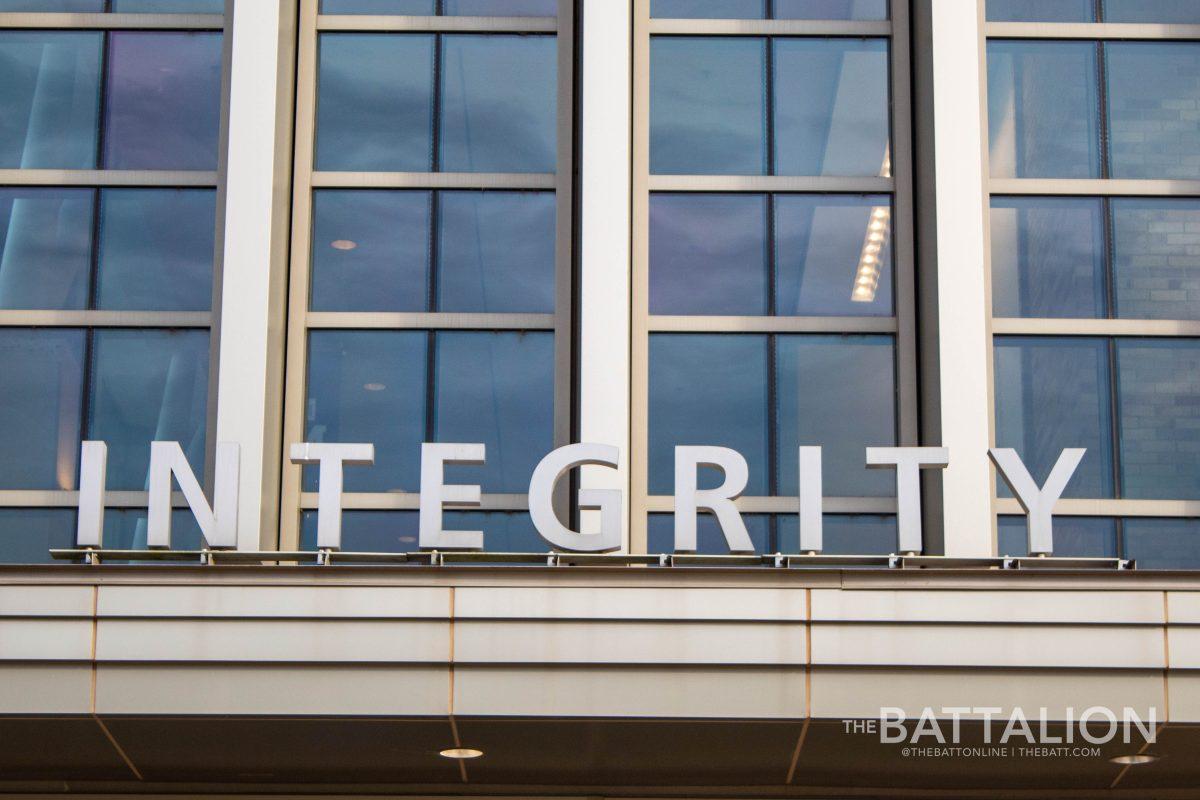In a semester of online learning, students have allegedly found dishonest ways to improve their grades.
According to an article by the Texas Tribune, Texas A&M has begun investigating wide-spread cheating by students after faculty reported unusually fast completion times for an exam taken by students in an online finance class, FINC 409, in early December.
In an email from Aggie Honor System Office Director Timothy Powers, guilty students were asked to self-report their Honor Code violations by Dec. 8 at 5 p.m. or potentially face suspension or expulsion by the university if found guilty.
“There are hundreds of examples in this course where questions were answered correctly before the question was ever displayed long enough to be read,” Powers said. “If you engaged in this behavior, I would like to encourage you in the strongest way to reclaim your personal integrity.”
Student accounts told the Texas Tribune that the online tutoring and homework help site, Chegg, was the main source used on assignments and exams. Discourse has surrounded the website recently, with individuals questioning whether the pay-by-the-month open forum encourages students to have others do their assignments for them.
According to the Chegg Honor Code, the website prohibits plagiarism, cheating and other forms of academic dishonesty.
“Dishonest behavior damages your reputation as a student,” the Honor Code reads. “It’s also unfair to other students, and it makes it difficult for your instructors to assess your learning. Misuse of Chegg’s services can have serious consequences, up to and including being banned from our platforms or having an investigation opened by your institution.”
However, this honor code didn’t prevent “many, many” students in the A&M finance class from using the site for their own benefit or helping others in the course, according to Powers.
“At least one of the students posting this information online has also admitted to doing so,” Powers said. “The professors then found entire exams and quizzes posted online. Most, if not all, questions on the assignments were unique to this semester, so the posted information is largely from this semester.”
Some students who self-reported their misuse of Chegg’s services said outside factors contributed to their use of the site. One wrote an open letter that said unclear course guidelines allowed some to believe online collaboration was not in conflict with the class’s syllabus.
“The only specific instructions concerning academic integrity given to students included the fact that quizzes/exams were open note, that calculators were allowed; and that collaboration with anyone on each assessment was prohibited,” the letter read. “The gray area that many students, including myself, were not aware of was the fact that using an unauthorized source as study material to prepare for quizzes/exams could end up being considered academic misconduct.”
Another student in the course, who did not engage in academic misconduct in FINC 409, said he clearly understood the open note allowance on exams.
“I’m just surprised so many people went to Chegg test answers,” the student said. “It’s not a very difficult class and we had access to Excel spreadsheets to do a lot of the math as part of the open notes we were permitted to use during the exams.”
In the email to the class, Powers listed the outcomes for those who self-report their academic dishonesty.
- For cheating on quizzes only, the reporting student will receive a 0 for the assignment and be required to take a Academic Integrity Development program but continue to be in good standing with the university.
- For cheating on some exams and/or quizzes, the student will receive an “F” for the course and be placed on Honor Violation Probation.
- If a student exhibited academic misconduct on five or more assignments or two or more exams, the Honor Council will investigate and may select suspension as punishment, but no permanent expulsion from A&M.
If a student did not self-report, but was found guilty through the pending investigation, Powers said more strict consequences will be enacted.
- Misconduct on quizzes only will result in 0’s on the offending assignments, as well as required participation in the Academic Integrity Development program, a letter grade reduction for the course and Honor Violation Probation for the student.
- Cheating on exams and quizzes will place the student under the Honor Counsel process, with both suspension and expulsion as potential outcomes.
Academic dishonesty discovered on more than five assignments or two quizzes will result in a Honor Council Process where permanent expulsion is a strongly considered result.
As of Dec. 14, there have been no expulsions or suspensions, though the investigation could take up to a month, allowing for a student appeal process if a ruling is seen as unfair.
“While we obviously cannot and will not comment on the specifics of an ongoing investigation, we are committed to administering a fair process as outlined in our Student Rules, while upholding the integrity of the degrees awarded by the university,” Provost Carol Fierke said.
This is a developing story and will be updated as The Battalion receives additional information.










